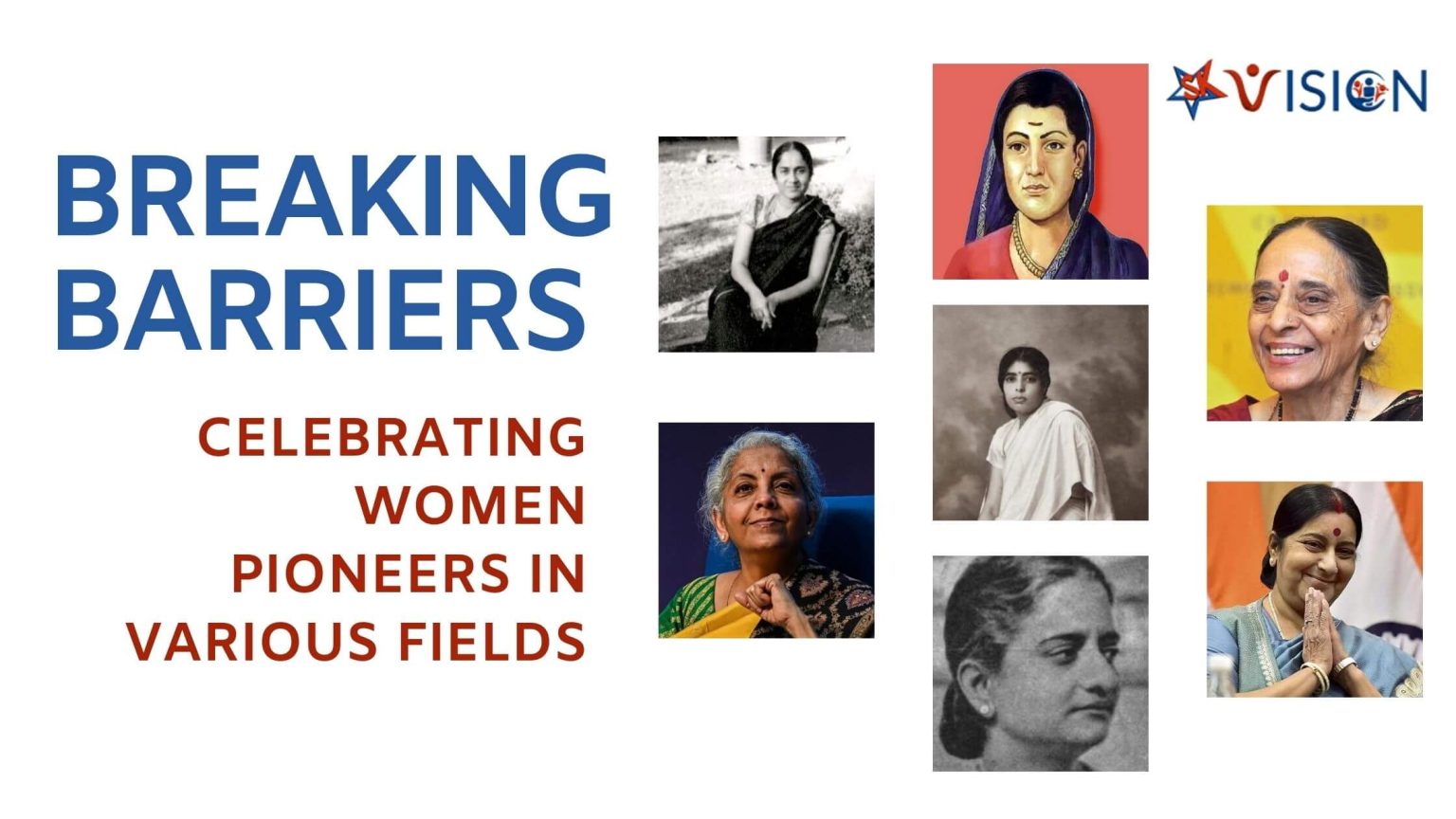Women play an important role in developing society. They had made great contributions in various fields like science, technology, politics, etc. but they faced many obstacles in their way. STEM education help to get advance education and to become more effective and successful in their lives.
Women’s economic involvement and advancement are hampered by many things. Several major issues including structural inequality, discriminatory laws and policies, limited access to resources and finance, unequal wages and gender-based violence.
Among other notable achievements, women have broken boundaries in the corporate sector. Women’s achievements should be celebrated and acknowledged for more than just their prior successes.
To remind us of the work done by women and their role as strong pillars of the country, we need to appreciate their work. For this reason, we celebrate women’s achievements and accomplishments worldwide.
Here we are celebrating women pioneers in various fields and going to talk about some of the women who break their barriers and become an example for the world.
Savitribai Phule

Savitribai Phule was the very first female teacher in the country. Alongside her spouse, Jyotirao Phule, she made a noteworthy impact on the advancement of women’s empowerment. In Pune, in 1848, Savitribai and her husband established Bhide Wada, one of the earliest modern Indian schools for girls.
She was the very first female teacher in the country. Alongside her spouse, Jyotirao Phule, she made a noteworthy impact on the advancement of women’s empowerment. In Pune in 1848, Savitribai and her husband established Bhide Wada, one of the first modern Indian girls’ schools.
Kamala Sohonie

In 1939, Kamala Sohonie became the first female scientist in India. From her community to be awarded a PhD in a scientific field in 1939. She is the first female Indian PhD recipient in a scientific discipline. Kamala Sohonie cleared the path for women when she admitted in Indian Institute of Science, Bengaluru. She worked there and was given admission for the first time in its history
Kamala Sohanie was awarded the Rashtrapati Award because of her studies on Neera, a palm extract that has the potential to alleviate malnourishment in children from India’s tribal areas.
Leila Seth

Justice Leila Seth is a visionary not only in her approach to the law but in all aspects of social justice. Leila Seth was the first woman to top the bar exam in England. She became the first judge in the Delhi High Court and the first female chief justice of the state high court in Himachal Pradesh.
Leila Seth was the first woman to score the bar exam in England and Wales in 1957, the first woman judge on the Delhi High Court and the first woman Chief Justice of a State High Court (Himachal Pradesh).
Janaki Ammal

Indian botanist Janaki Ammal studied photography, cytogenetics, and plant breeding. She was a botanist from India. She was very interested in medicinal and commercially lucrative plants found in Kerala.
She received the Padma Shri in 1977. Her most well-known research included experiments on eggplant and sugarcane. She co-authored the Chromosome Atlas of Cultivated Plants (1945) with C.D.
Nirmala Sitharaman

Since 2019, Nirmala Sitharaman has served as the Indian government’s Minister of Finance and Minister of Corporate Affairs. She is a prominent figure in Indian politics as well as an economist from India. She holds the distinction of being the first Indian woman to be listed among the world’s most powerful women by Forbes.
Nirmala Sitharaman is the nation’s second-most important portfolio holder after Indira Gandhi and the first woman to serve as finance minister full-time in history. Her appointment signifies a change in the traditionally male-dominated world’s view of gender roles. Nirmala Sitharaman was born in Madurai, Tamil Nadu, on August 18, 1959. She started out doing a lot of international cinema work before entering politics.
Ayyalasomayajula Lalitha

Ayyalasomayajula Lalitha was born into a Telugu-speaking family in Madras on August 27, 1919. She became India’s first female engineer. She is the perfect example of what you can achieve if you get an education. Miss Lalitha had to face many barriers to getting her education.
Ayyalasomayajula Lalitha got married at a very young age and became the mother of a daughter. After her husband’s death, her father helped her complete her intermediate and further studies.
The only Indian woman engineer to attend the first International Conference of Women Engineers and Scientists (ICWES) in New York in 1926 was Lalitha.
Sushma Swaraj

On February 14, 1952, Sushma Swaraj was born in Ambala, Haryana. In 2020, she received the Padma Vibhushan Award. Born in a middle-class family, Sushma Swaraj studied at Punjab University to pursue a law degree.
At the age of 25, she was appointed as the youngest Cabinet Minister of the Haryana government. At the young age of 27, she was elected State President of the Janata Party in Haryana State in 1979.
Sushma Swaraj was the first female spokesperson for a national political party in India.
She was elected to the Haryana state legislature and became the state government’s minister of labour and employment from 1977 to 1979 and of education, food, and civil supplies from 1987 to 1990.
Read Also>>> Success Stories: Indian Women Who Broke Educational Barriers
Conclusion:
Education helps in reducing child labour so that they can concentrate on their studies and also divert their attention from bad habits like drug addiction. If the base is strong then the pillar will be strong. To promote more inclusive and equitable future for all requires providing regular opportunities, mentorship, and support .
Women can overcome barriers and succeed in their professions with the aid of mentoring programs, particularly those in which women mentor other women. Along with aggressively seeking to attract, retain, and promote women, organizations should offer more conferences, training, and mentorship programs for staff growth. A positive impact created by women in leadership roles encourages additional women to aspire to higher levels of education and the workforce.

